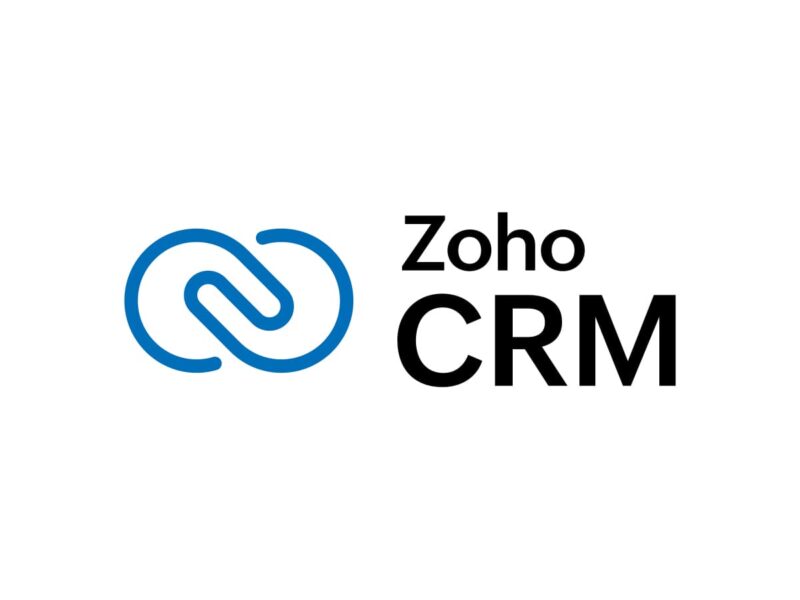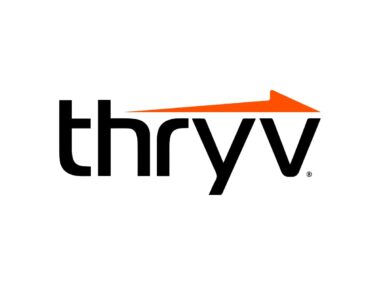Table of Contents
Key Features of Zoho CRM Software
Zoho CRM, a highly recommended CRM system for small businesses, stands out for its comprehensive and integrated approach to managing various business functions. Key features of Zoho CRM include:
- Centralized Management Platform: It offers a centralized system to manage sales, marketing, customer service, and inventory.
- Pricing Options: Zoho CRM offers a range of pricing plans, including a free option for small teams, making it accessible for various business sizes.
- Sales Management Features: The software provides a wide array of sales management tools, including sales force automation, workflow management, and CRM reports, accessible even from a mobile app.
- Mobile App Functionality: The mobile app allows for effective management of contacts, deals, sales visits, and analytics, and includes features like RouteIQ for intelligent route planning and a business card scanner for easy contact addition.
- AI Assistant (Zia): Zia, the AI assistant, aids in task efficiency, offering features like deal status updates, sales forecasting, and predictive analytics.
- Extensive Third-party Integrations: It supports numerous integrations with other applications, enhancing functionality in areas like social media management, email marketing, and team productivity.
- Advanced Features: Zoho CRM includes advanced tools for lead and client management, omnichannel capabilities, social media management, predictive forecasting, and sales territory management.
- Social Media Management: The software provides tools for monitoring brand mentions, managing social profiles, and setting up automated lead generation through social media interactions.
- Omnichannel Communication Platform: Zoho CRM facilitates interaction with customers through various channels, including email, telephony, social media, SMS, live chat, and web conferencing, backed by SalesSignals for real-time customer interaction notifications.
- Territory Management: This feature allows for the segmentation of accounts, contacts, and deals into specific territories, offering tools for territory assignment and interactive analytics.
In summary, Zoho CRM is a versatile and comprehensive CRM solution, offering a range of tools and features that cater to various aspects of business management, making it a suitable choice for small businesses seeking an integrated approach to CRM.
Performance
- User Experience: Zoho CRM is noted for its ease of use, with a user-friendly interface and an efficient setup process. The mobile application is also highly regarded for its functionality.
- Customization and Integration: Users appreciate the customizable interface and workflows, and the ability to integrate with other Zoho apps and third-party tools. This flexibility proves vital for businesses with diverse needs.
- Affordability and Accessibility: The software is considered affordable, particularly beneficial for small companies and startups. Its pricing options are attractive, and the software provides essential features for sales, marketing, and customer support.
- Issues and Limitations: Some users have reported challenges with customer support and technical glitches. There are concerns about the slow implementation of bug fixes and occasional unreliability of the platform.
- Functionality for Various Business Needs: Zoho CRM has been effective in managing sales, marketing, and customer service aspects of businesses. It has features for project management, reporting, and analytics, which have been critical for business growth.
- Complexity for Less Tech-Savvy Users: There is a notion that Zoho CRM might have too much functionality, making it less user-friendly for less technically savvy employees. Some users have also expressed difficulties with the dashboard setup and data importation, leading to issues like duplicate entries.
- Sales Pipeline Management: Zoho CRM has been beneficial in managing sales pipelines, offering easy navigation and use. However, the free version is noted to have limited functions, and some users found it challenging to get phone support.
In summary, Zoho CRM is widely appreciated for its user-friendly interface, customization options, affordability, and comprehensive features. However, it faces challenges in areas like customer support, technical reliability, and complexity for less tech-savvy users. The balance of benefits and drawbacks highlights the importance of assessing individual business needs when considering Zoho CRM for day-to-day operations.
Pros
- Affordability and Accessible Pricing: Zoho CRM is known for its affordable pricing options, making it an attractive choice for small businesses and startups.
- Customization and Integration: It stands out as a highly customizable CRM, allowing integration with a wide range of customer/prospect interactions and external systems. This includes syncing with other Zoho products and creating custom application integrations.
- Advanced Sales Features: The CRM offers advanced sales features that cater to various business needs, including workflow tools for marketing, project management, and customer service.
- AI Capabilities: Zoho CRM includes artificial intelligence features, adding efficiency to various CRM-related tasks.
- Strong Social Media Management Tools: The platform offers robust tools for social media management, facilitating brand monitoring and engagement across different social channels.
- Comprehensive Functionalities: Zoho CRM is noted for its broad range of functionalities, including process management, automation, and various business tools like email marketing and inventory management.
- Ease of Collaboration: The software facilitates collaboration across teams, which is particularly beneficial for businesses with remote workers or those that require cross-departmental coordination.
- Mobile Accessibility: Its mobile client is praised for its comprehensive features and intuitive interface.
Cons
- Limited File Storage: Most plans offer limited file storage, with only the Enterprise plan providing a more generous allocation.
- Inconsistent Customer Support: Customer support has been reported as inconsistent, with some users facing challenges in getting timely and effective assistance.
- Complex User Interface: The user interface of Zoho CRM is often described as not being very user-friendly, which can pose a challenge, especially for less tech-savvy users.
- Limited Free Platform: The free version of the platform is considered too barebones, lacking in many of the advanced features offered in paid plans.
- Expensive Add-ons: While the base pricing of Zoho CRM is competitive, the cost of add-ons can accumulate, making the overall expense higher.
- Implementation and Technical Challenges: Integrating with Zoho CRM can be complicated and not always consistent. Some users find the setup process and documentation confusing and overly technical.
- Limited Improvement in AI Assistant: The AI assistant included in Zoho CRM, while a notable feature, does not significantly add value according to some users.
- Additional Subscription Pricing: The pricing structure is per user, which may not be as cost-effective for larger teams.
In summary, Zoho CRM excels in affordability, customization, advanced sales features, and social media management, but it faces challenges in customer support, user interface friendliness, and the limitations of its free version. Potential users should weigh these pros and cons against their specific business needs and technical capabilities to determine if Zoho CRM is the right fit for them.
Conclusion
Zoho CRM, a cloud-powered and leading CRM tool, is acclaimed for its robust feature set and versatility, catering to a wide range of industries and business sizes. Here’s an expert perspective on Zoho CRM, highlighting its key strengths and unique offerings:
- Global Reach and Versatility: Zoho CRM is a top-rated product of Zoho, servicing over 2.5 million businesses in 180 countries. It demonstrates its adaptability by providing tailored solutions across various industries, including life sciences, finance, real estate, retail, insurance, customer service, and more. Each industry-specific CRM version offers unique features to cater to the distinct needs of these sectors.
- User Interface and Ecosystem Integration: Zoho CRM is known for its intuitive user interface, which contrasts with the complex interfaces of some competitors. This user-friendliness makes it accessible, especially for businesses lacking extensive IT resources. Additionally, as part of the Zoho ecosystem, it seamlessly integrates with other Zoho applications, offering a connected workflow experience.
- Customization and Flexibility: One of the key strengths of Zoho CRM is its balance of customization and ease of use, making it accessible for businesses with limited technical resources. It offers an array of features like sales force automation, marketing automation, and omnichannel solutions, all customizable to fit the specific needs of a business.
- Innovative Features and Continuous Improvement: Zoho CRM continuously evolves, adding new features like the Canvas Design Studio for enhanced user experience and drag-and-drop editor functionality. The CRM system includes advanced analytics, predictive sales, process management, and sales enablement, showcasing Zoho’s commitment to innovation and technological advancement.
- Recognition and Accolades: Zoho CRM has been acknowledged as a visionary in Gartner’s 2022 Magic Quadrant for Sales Force Automation and has consistently received accolades from various authoritative sources, further reinforcing its standing in the CRM market.
- Transparent Pricing: Recognized for its transparent pricing structure with no hidden costs, Zoho CRM stands out as a cost-effective solution, appealing to businesses mindful of budget constraints.
- Specialized Solutions for Diverse Needs: Zoho CRM offers specialized solutions for different business types, including startups and non-profits. For instance, Zoho Bigin is specifically designed for small businesses, focusing on building robust customer relationships and simplifying the CRM process.
In conclusion, Zoho CRM’s broad feature set, industry-specific solutions, intuitive user interface, and strong integration capabilities within the Zoho ecosystem make it a powerful tool for businesses of various sizes and sectors. Its ongoing development and adaptation to user feedback, along with its transparent pricing, position Zoho CRM as a versatile and accessible CRM solution in the market.
FAQs
-
What is Zoho CRM and how can it benefit my business?
Zoho CRM is a versatile customer relationship management software that helps businesses streamline sales, marketing, and customer service operations, enhancing lead management and customer engagement.
-
Is Zoho CRM suitable for small businesses or startups?
Absolutely, Zoho CRM offers scalable solutions and affordable pricing plans, making it ideal for small businesses and startups looking to manage customer relationships effectively.
-
Can Zoho CRM integrate with other applications?
Yes, Zoho CRM seamlessly integrates with various applications, including Zoho’s own suite of tools and popular third-party apps, ensuring a connected workflow.
-
Does Zoho CRM offer mobile accessibility?
Zoho CRM provides a comprehensive mobile app, allowing users to manage customer interactions, access data, and track sales activities on the go.
-
How does Zoho CRM handle data security and privacy?
Zoho CRM prioritizes security and privacy, implementing robust measures to protect user data, ensuring compliance with global privacy standards, and offering transparent and flexible contract terms.





